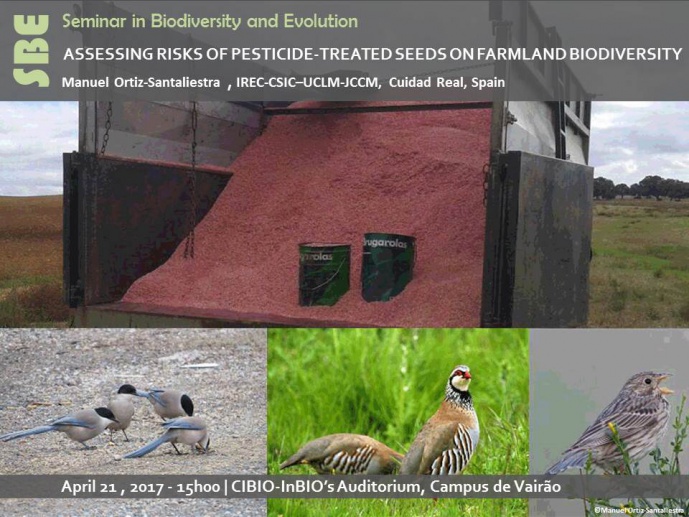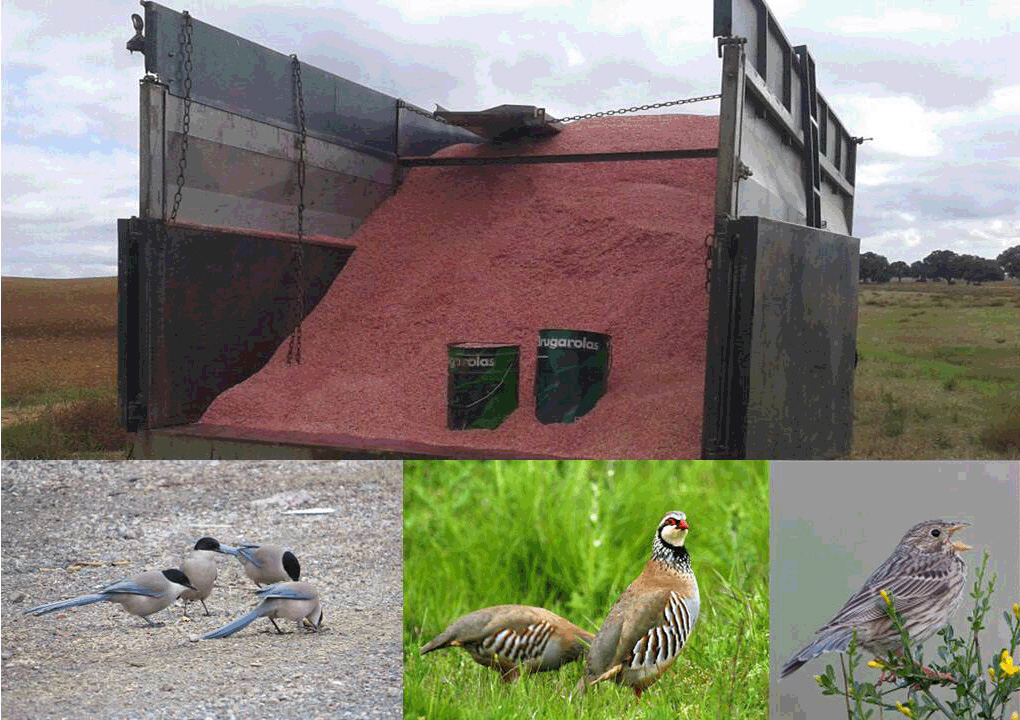ASSESSING RISKS OF PESTICIDE-TREATED SEEDS ON FARMLAND BIODIVERSITY


Application of pesticides is recognized as one of the main reasons for declines of farmland biodiversity. In spite of the legal assessment procedures that should guarantee that no unacceptable risks to wildlife are associated with the release of pesticides, some practices like coating seeds with pesticides before sowing constitute a high risk of poisoning to granivorous animals that feed on these seeds. Since 2010, we have investigated the toxicity of pesticide-treated seeds on farmland birds, observing in some cases that lethal and reproductive effects may occur at the recommended application rates. In order to complete a risk assessment, we have also conducted experimental and field research to characterize the exposure of avian communities to treated seeds. Whereas a reduced acceptance might contribute to mitigate the exposure risks, either the absence or the unpredictability in the location of alternative, clean food sources would force some species to feed on treated seeds, potentially getting lethal doses of certain compounds by ingesting the seeds available in a few square meters of the field headlands. Current research in this context aims at refining the exposure assessment based on studies about diet, behaviour and spatial ecology of different bird and mammal species. The final purpose of this line of research is to determine the environmental sustainability of the usage of coated seeds and the proposal, if relevant, of risk mitigation measures.
Manuel Ortiz-Santaliestra is a researcher at the Spanish Institute of Game and Wildlife Research (IREC), a joint centre of the Spanish Council for Scientific Research, the University of Castilla-La Mancha, and the Castilla-La Mancha Regional Government. He conducts research on wildlife toxicology from a multi-tiered perspective, integrating studies about the effects of chemicals at different levels of organization (from molecules to populations) and on the different classes of tetrapod vertebrates. He is particularly interested on those aspects of the ecotoxicological research that generate tools to be implemented into ecological risk assessment of chemicals, especially pesticides, in order to maximize effectiveness of risk assessment procedures in protecting wildlife from the impact of pollutants. He is currently engaged as an expert in the working group of the European Food Safety Authority (EFSA) elaborating the scientific opinion on amphibian and reptile pesticide risk assessment, and is also co-editor of Basic and Applied Herpetology, the scientific journal of the Spanish and Portuguese herpetological societies.
[Host: Miguel Carretero, Applied Phylogenetics]
Image credits: Manuel Ortiz-Santaliestra